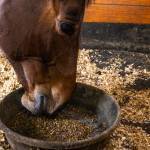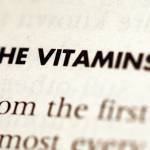Question
I was told by my vet that my 30-year old-Arabian gelding appears to be slightly anemic. He is in beautiful, healthy condition. He is getting quality senior feed/hay and supplements as well as some prescription medicines for arthritis. My vet noticed his tongue and gums were paler than normal, and he doesn't have the pep he had just a couple of years ago. She recommended a well-known blood builder. If this will help, how long will it take and is there anything else I should be doing?
Answer
The loss or lack of red blood cells, typically called anemia, can be caused by internal or external bleeding, destruction of red blood cells, or inadequate production of red blood cells. Before discussing the efficacy of blood-building supplements for horses, it is important to establish the cause and severity of the anemia and discuss what is normal for your horse. It is not uncommon for healthy horses to have a packed cell volume (PCV) below the normal range (32-53%) without being clinically anemic. The combination of a low PCV and reports of laziness or unusual behavior may lead to the diagnosis of anemia without probable cause.
Because a blood-building supplement was recommended, it would indicate that the anemia is believed to be due to low or marginal levels of iron or B-vitamins; however, it is rare that a practical diet would lead to anemia caused by iron deficiency. Horses that have a low PCV do not usually respond to supplemental iron. Other factors that can lead to pale mucous membranes are dehydration, chronic bacterial infection, and severe parasite burden, and these should be ruled out before treating for anemia.
In addition, older horses often present with low PCV due to many contributing factors, but as long as other blood parameters are normal and the horse is otherwise healthy, concern and urgency for treatment is low. As your horse is older, it may be worth providing supplemental B-vitamins as changes in his hindgut microflora may result in marginal B-vitamin status. Effective sources of B-vitamins are brewer’s yeast, distiller’s grain, whey protein, and green pasture.
To monitor the efficacy of the supplement product, I would recommend having bloodwork taken after several months of supplementation to determine if your horse is responding. Keep in mind that not knowing what is normal for your horse (his presupplementation status) can make this difficult to quantify and anecdotal improvements are often reported as a result.








